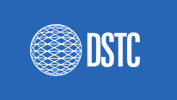While other projects within EDST plan to investigate and develop
models of enterprises, the goal of this project is to take high-level
concrete descriptions of business applications and generate
as much code to implement these applications as is possible.
Existing middleware technology tends to focus on either providing
computational interfaces to objects but not linking these together
other than with code, or on managing sequences of coarse-grained
black-box tasks but without providing computational interfaces
to these sequences.
Now that CORBA, EJB, DCOM, and other middleware systems expose
legacy applications through object interfaces, it becomes possible
to write high-level specifications for the interaction and coordinating
of these components using enterprise level constraints rather
than just simple execution ordering.
The outputs of related projects such as Elemental allow us to
write higher-level specifications and do a better job of the
automated code generation. The outputs of the Pegamento project
include the following:
- Standards for specifying Enterprise Distributed Object Computing
systems using UML. This work is done jointly between the Pegamento
and Elemental projects.
- Specifications for mappings from (UML) design artifacts to
middleware glue.
- Tools and plugin tool architecture for achieving mappings.
- Next generation workflow middleware.
Contact Point:
Mr Keith Duddy
Phone 07 3365 4677
Email
dud@dstc.edu.au
Dr Michael Lawley
Phone 07 3365 4173
Email
lawley@dstc.edu.au
Staff:
Dr Kerry Raymond
Mr Keith Duddy
Dr Michael Lawley
Mr David Hearnden
Erica Glynn
Current areas of work:
OMG
EDOC RFP 1:
UML
Profile for EDOC
EDOC RFP 2: UML Profile for CORBA
EDOC RFP 3:
Human
Usable Textual Notation for EDOC (aka HUTN)
EAI RFP: Enterprise Application Integration
Breeze:
Workflow with ease
HUTN: Human Usable Textual Notations (for MOF)
HUGN: Human Usable Graphical Notation

